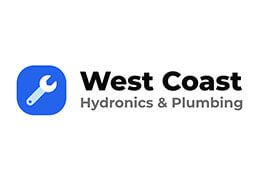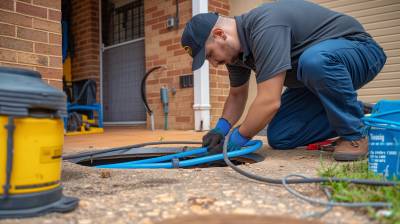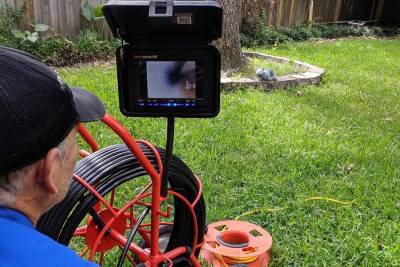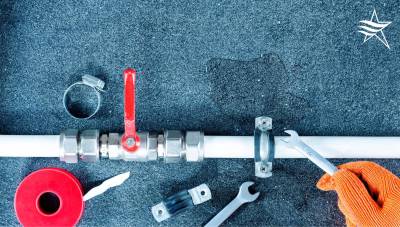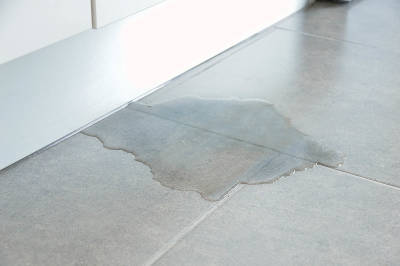Have you ever turned on your faucet only to be startled by a loud hammering sound and sporadic water stream? The culprit of this annoying event is likely a common issue known as 'air in water lines.' This problem is prevalent in many households and can potentially lead to significant plumbing complications if not correctly addressed. If you're a homeowner or renter, familiarizing yourself with this issue is vital, and this post is tailored explicitly towards giving you that understanding.
Understanding 'Air in Water Lines'
As the term implies, air in water lines refers to the presence of air bubbles in your home's plumbing system. While water should fill plumbing pipes, air can accidentally get trapped within the pipes, creating air pockets or blocks. These air pockets cause various issues, including air locks that prevent water flow, noisy pipes due to the hammering effect of air ('water hammer'), and sporadic, spluttering water flow from faucets and showerheads.
Causes of Air in Water Lines
Water Supply Disruptions
Disruptions in your local water supply due to maintenance or repairs can introduce air into the system. Typically, during such works, service providers shut off supply, reducing water pressure and enabling air to enter the lines. When the water flow is resumed, the air gets pushed into your home's plumbing.
Leaking Pipes
Leaks in your water lines can allow air to intrude into your pipes. Air naturally wants to move from high pressure to low pressure. Therefore, if there's a leak in your water line, the surrounding air may get sucked into the line.
How to Detect Air in Water Lines
Irregular Water Flow
One of the most apparent signs of air in your pipes is irregular water flow from faucets or showerheads - commonly known as sputtering water. The trapped air forces water to release sporadically, which leads to this inconsistency.
Loud Noises
Echoing noises or banging sounds (water hammer phenomenon) originating from your pipes are another significant indication of air in your water lines. The trapped air causes pressure surges, resulting in these sounds often heard.
Solutions for Air in Water Lines
Once air intrudes into your water lines, it's crucial to address it promptly. Otherwise, it can lead to bigger issues like damaging the plumbing system or causing water heater issues. Here are some effective methods to remove air from water lines:
- Opening all water taps: Open all your faucets and showers, starting from the lowest level, to release the trapped air. Bigger air pockets might resistance, so leave the taps open for a while.
- Pressure reducing valve installation: Installing a pressure reducing valve at the meter can help manage the pressure from the main water supply, reducing the chance of air ingress.
- Professional plumber assistance: For persistent or severe airlock issues, it's recommended to seek professional help from a licensed plumber.
Preventing Future Air in Water Lines Problems
Regular preventive measures can help safeguard your water lines against future air ingress. Proper system pressure management, regular maintenance, and professional plumbing assessment can ensure smoother and quieter water flow. Being proactive in recognizing and addressing the problem minimizes the potential for costlier damage and repairs down the line.
While the issue of air in water lines might seem minor at first glance, it can cause significant disruption within your home's plumbing system if ignored. It's important to understand the causes, signs, and remedies for air in water lines to maintain an effective, quiet, and smoother running plumbing system. Regular maintenance checks, proper professional intervention, and preventative measures are the most effective ways to tackle and prevent air in water lines problems.
Frequently Asked Questions about Air in Water Lines
We understand that having air in your water lines can be quite a confusing and somewhat frustrating issue. Hence, we've compiled this in-depth FAQ to help you better understand and manage this situation. Here are some commonly asked questions about air in water lines:
Why Is Air Getting into My Water Lines?
Air can enter your water lines for various reasons. It can be caused by a leak in the line, water supply issues, or even due to maintenance and repair work conducted on the line. In some cases, air can also enter the system when the water supply is temporarily shut off.
Can Air in Water Lines Cause Damage?
Absolutely. While air in water lines might seem like a minor inconvenience, it can lead to substantial damage if left unchecked. For instance, extended periods of air in your water lines can cause repetitive pressure buildup leading to weakened pipes and potential leaks.
How Do I Remove Air from My Water Lines?
There are multiple ways to remove air from water lines. The most common technique consists of opening all the faucets in your home allowing the air to escape as water flows through. However, persistent problems may require the assistance of a professional plumber.
Is It Normal to Have Air in My Water Lines After Repairs or Maintenance?
Yes, it's not uncommon to have air in your water lines after certain types of maintenance or repair work. This generally happens when the water supply is turned back on, rapidly filling the pipes and potentially trapping air. This air should naturally purge itself after a short while.
What If Air Keeps Getting into My Water Lines?
If air consistently gets into your water lines, it could be due to an underlying issue like a leak. In such cases, it's advisable to get your system checked by a professional plumber to identify and rectify the root cause.
Can I Prevent Air from Entering My Water Lines?
In some cases, air entry can be prevented by fixing leaks or rectifying the main supply issues. However, it's hard to prevent air from getting in during maintenance or repair. Consulting professional plumbers can help you adopt the best preventative measures.
Does Air in Water Lines Affect My Water Bill?
While air in the water lines doesn't directly affect the water bill, it can lead to leaks which could increase your water usage. Moreover, the cost of repairing damage caused by air pressure can also contribute to financial burden.
Can Air in Water Lines Cause Discolored Water?
Typically, air in water lines does not cause water discoloration. However, disturbances caused by air might stir up sediment, potentially leading to discolored water. Always consult a professional if you notice changes in your water's color or clarity.
We hope this FAQ helps you deal with the issue of air in your water lines more efficiently. Remember, when in doubt, it's always best to consult a professional.
Cons of Air in Water Lines
Sputtering Faucets and Unstable Water Flow
One of the main disadvantages of air in water lines is how it affects the consistency of water flow. An overabundance of air can cause water to sputter out of taps and showerheads. This inconsistent water pressure is not only annoying, but could also make tasks like washing dishes or taking a shower more time-consuming and less efficient.
- Increased water usage: Inefficient water flow could mean using more water to complete tasks, leading to wastage and higher utility bills.
- Damage to plumbing fixtures: The pressure from bursts of water can wear out faucets, potentially damaging them or shortening their lifespan.
Potential for Clogs
While the presence of air can indicate leaks, this same air can cause blockages in your water lines. These clogs form when air bubbles are trapped and accumulate in larger quantities in your pipes, blocking the normal flow of water.
- Plumbing maintenance costs: Dealing with these clogs could mean a costly visit from a plumber, or spending time troubleshooting and resolving the issue yourself.
- Potential for damage: If these clogs are not dealt with promptly, pressure can build up inside the pipes, leading to potential cracks and damage.
Impact on Water Heaters and Appliances
Air in the water supply can have detrimental effects on water heaters and appliances that use water. Excess air results in an uneven flow, which can impact the performance and lifespan of these devices.
- Appliance efficiency: Inconsistent water supply can hamper the performance of appliances such as dishwashers and washing machines.
- Lifespan of appliances: Over time, this could shorten the life expectancy of these devices, leading to premature replacements and unnecessary expenditures.
Potential for Pipe Erosion
Prolonged exposure to trapped air can enable pipe erosion. The constant onslaught of rapid water and air flow can cause the internal surfaces of the pipes to erode over time. This can potentially lead to pipe failure and even flooding, resulting in expensive repairs and replacements.
Summary
Dealing with air in water lines can be a bit tricky but not impossible to resolve. Regular draining can ensure that air is not trapped within your plumbing system. If left unchecked, air in water lines can lead to anomalies like water hammer effect or noisy pipelines, both of which can have adverse effects on your home's plumbing over time.
Understanding the cause of air in water lines is crucial to preventing this issue. It could result from changes in water pressure or even a faulty water pump. By understanding the cause, we can address the situation effectively, preventing undue damage to our water systems. Remember, a little maintenance and vigilance can go a long way in ensuring seamless water flow within our homes.
If seemingly simple solutions like draining the system or fixing the water pump do not remove the air in water lines, it might be best to consult a professional. They would be equipped with the expertise and tools to accurately identify and rectify the problem. So, don't ignore the small signs, they could be telling you an important story about the health of your water systems!
About West Coast Hydronics & Plumbing
Welcome to West Coast Hydronics & Plumbing, proudly serving all of Sacramento, CA and the surrounding areas. We are your one-stop shop for all of your heating, cooling, and plumbing needs. Our team of skilled professionals brings years of field experience and top-quality customer service to every job. We understand that needing HVAC or plumbing services isn't always a walk in the park, but we aim to make the process as easy and straightforward as we can. To find out more about our full range of services, we invite you to visit our website. Trust us for all of your HVAC and plumbing needs - we've got you covered!
